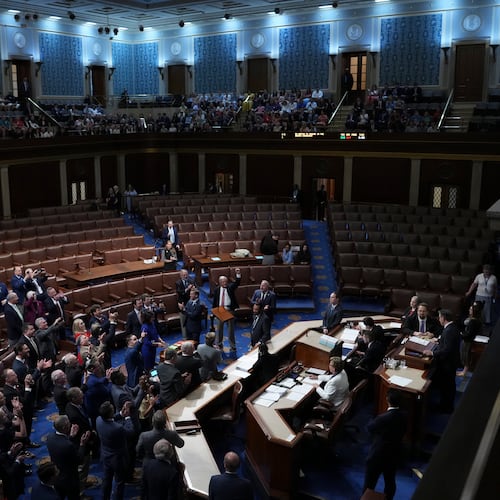There are millions of Georgia families just like ours who live by a monthly budget to pay the mortgage, groceries, car expenses and utilities. While most of those are fixed costs, one budget-buster seems to be out of control: escalating healthcare costs.
Georgians who get employer-based health insurance now see at least 14 percent of their pay consumed by healthcare costs, according to a recent survey by The Commonwealth Fund. Any pay raise seems to be gobbled up by these ever-increasing costs for premiums, deductibles and co-pays.
The average out-of-pocket health costs are now higher for Georgia workers than the national average. But at the same time, it is also getting more difficult to find a doctor across our state thanks to population growth, a physician shortage - —especially in rural communities, and the impact of Obamacare.
With medical care costing more but less available, it’s time we as state leaders respond to what Georgians demand: affordable and accessible healthcare.
That’s why I have appointed the Task Force on Healthcare Access and Cost with visionaries in the private and public sector to make recommendations to the General Assembly to bring down the price of healthcare and make it easier to find. The first meeting is scheduled for Sept. 5 at the state capitol in Atlanta.
In 2018, as Gov. Brian Kemp and I traveled the state campaigning for office, one of the primary concerns we heard from 11 million Georgians was that healthcare was now almost as expensive as housing and that it is too difficult to find a doctor. That’s why earlier this year we passed 22 healthcare bills to start this process, including a revamp of the state’s Certificate of Need law to give patients more access to cancer care.
The data certainly supports their sentiment. A 2017 survey by Merritt Hawkins, a healthcare research firm, found that wait times for a new patient appointment are increasing in metro Atlanta to see the top five specialties – orthopedists, cardiologists, dermatologists, family medicine and obstetrician/gynecologists. The average wait time in 2017 was 20.4 days to see a physician in one of these specialties compared to 2009 when it was 11.2 days.
However, the actual wait time for one specialty – ob/gyn doctors – had grown to 39 days in 2017, illustrating the need for more physicians to see Georgia patients.
Meanwhile, in rural Georgia wait times are not an issue because there are so few doctors there practicing medicine. That is completely unacceptable.
Eight rural Georgia counties have no physician practicing in the community, including Echols County on the Georgia-Florida line, according to The Georgia Board for Physician Workforce. Sixty-three counties have no pediatrician or obstetrician/gynecologist, including vast swaths of Central and South Georgia. And 78 counties, primarily in Southwest Georgia, have no general surgeon.
With this staggering challenge ahead of us, this Task Force on Healthcare Access and Cost will have the opportunity to innovate and find solutions in a way that Obamacare failed. Instead of offering a government solution, we want to hear what the private sector wants to offer healthcare at a cheaper, more competitive price while at the same time encourage more providers in the marketplace.
Georgians want a healthcare system, not a healthcare program, and they want it to be patient-centered so they can establish quality doctor-patient relationships. The only way this can happen is if we remove the barriers to care: high cost and inability to find a doctor when needed.
With our new healthcare task force, I expect some 21st century recommendations for a challenge as old as humanity: finding a way to keep everyone in good health.
Geoff Duncan is Georgia’s Lieutenant Governor. He is the former CEO of Wellview Health.
About the Author
Keep Reading
The Latest
Featured



